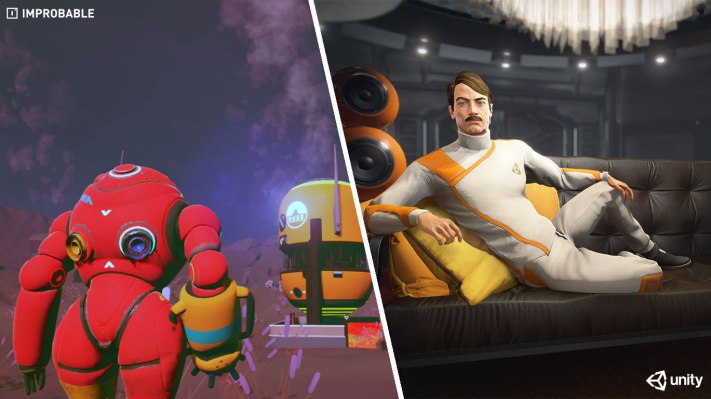Video games have never been just games, but as developers grow their ambitions, thanks to evolving, powerful game development tools, the line between real life and simulation has been growing much murkier. To hear more about what’s enabling these brave new virtual worlds, join us at Disrupt SF 2017 where we’ll be chatting with John Riccitiello, the CEO of Unity, and Herman Narula, the CEO and co-founder of Improbable.
Game development platforms like Unity and Improbable’s SpatialOS are all about empowering game creators to build incredible things.
These startups have a couple of things in common (other than huge ambitions). They’re both building tools that are great for game developers looking to make a big impact without limitless resources. They’ve also both raised tons of money in the past year as their ambitions have expanded thanks to the advent of virtual and augmented reality. Over the past year, Unity has raised $581 million, its latest round reportedly landing it a $2.6 billion valuation. In May, Improbable closed a $502 million round of funding led by SoftBank.
Game engines like Unity allow developers to power the animation, physics, lighting and interactions within their virtual worlds. If developers are playing God, Unity defines the laws of nature within their creations. While larger gaming studios spend millions building their own engines, Unity’s product has enabled millions of indie developers to create titles that look just as beautiful. More than half of all new mobile games are built using Unity.
In the past couple of years Unity has set its aspirations even higher, seeking to become the dominant tool for VR/AR developers. Even with a nascent, scattered market, Unity is already one of the… ahem… unifying forces behind VR/AR development.
The U.K.-based Improbable builds tools that allow developers to vastly expand the scale of the projects they are working on. Using the company’s SpatialOS product, developers are able to create massive multi-player worlds or simulations on cloud-based multi-server systems.
Like Unity, the company’s software has capabilities that expand far beyond gaming. Improbable has worked on infrastructure models for autonomous-vehicle fleets and telecommunication networks, as well.
Both of these companies are undoubtedly expanding the imaginations of those creating the immersive games of today, but as investors continue to dump obscene amounts of money into fueling their ambitions, the real question is what types of simulations could their technology enable decades from now?
We’re excited to have the two companies participating in Disrupt SF 2017. General admission tickets are now available for the show too, and for a limited time, can be purchased at a lower price.
